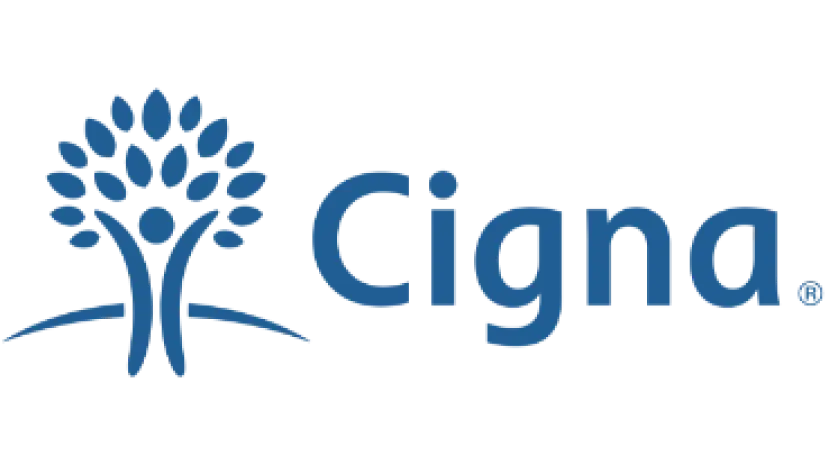



Opioid use in pregnancy is a multifaceted issue that encompasses prescribed usage, misuse, and the consumption of illicit opioids. This range of use reflects various circumstances, from medical necessity to addiction. The nuances of each scenario necessitate a personalized approach to care and support.
Recent years have seen a significant increase in opioid-related diagnoses at delivery. From 2010 to 2017, these cases have more than doubled, signaling a growing public health concern. Survey data from 2019 revealed that about 7% of pregnant women reported using prescription opioid pain relievers, with a concerning proportion misusing them. This misuse typically involves obtaining opioids from non-medical sources or using them for reasons other than pain relief.
Take Our Opioid Use Disorder Assessment
Pregnant individuals may require opioids for legitimate pain management, which presents a dual challenge for healthcare providers: adequately addressing pain while minimizing the risk of misuse and addiction. It’s essential to balance effective pain management with the safety of both the mother and the unborn child.
The misuse of prescription opioids during pregnancy is a critical concern. It often involves using medication in a way not intended by the prescribing doctor, such as taking higher doses or using opioids obtained from non-medical sources. This misuse poses significant risks to both the expecting mother and the fetus, including an increased likelihood of adverse health outcomes.
The use of illicit opioids, such as heroin or fentanyl, during pregnancy adds another layer of complexity. Illicit use is often associated with additional health risks due to the unregulated nature of these substances and the potential for harmful additives. This scenario requires a sensitive and comprehensive approach to treatment and support, as it often intersects with issues of addiction, mental health, and socioeconomic factors.
Opioid use during pregnancy is linked to several serious health risks for the mother. These include an increased likelihood of maternal mortality and complications such as preeclampsia (when a pregnant woman has high blood pressure which can put additional stress on the heart). Additionally, opioid use can exacerbate underlying health conditions, making pregnancy and childbirth more challenging and riskier. The psychological impact, including increased stress and the potential for depression or anxiety, should also be considered.
Opioid exposure in utero can significantly affect fetal growth and development. Issues such as restricted fetal growth or intrauterine growth restriction (IUGR) are more common, leading to low birth weight and potential long-term developmental concerns. The likelihood of preterm birth is also heightened, which can lead to a range of complications for the newborn, including respiratory distress syndrome and developmental delays.
Research indicates a correlation between opioid use during pregnancy and an elevated risk of stillbirth. Additionally, specific congenital anomalies, such as neural tube defects, heart defects, and abdominal wall defects, have been associated with opioid exposure during critical periods of fetal development.
NAS is a significant concern for infants born to mothers who used opioids during pregnancy. It manifests as a constellation of withdrawal symptoms, ranging from mild to severe, which can include issues with feeding and nutrition, respiratory problems, and neurological symptoms. The management of NAS often requires specialized neonatal care, including pharmacotherapy and supportive care interventions.
The long-term impacts of prenatal opioid exposure on child development are an area of ongoing research. Potential concerns include delayed cognitive development, behavioral problems, and increased susceptibility to mental health and substance use issues later in life. These risks underscore the importance of early intervention and ongoing monitoring for children exposed to opioids in utero.
Addressing the health implications of opioid use during pregnancy requires an integrated approach to care that includes obstetricians, addiction specialists, pediatricians, and mental health professionals. This team-based approach can provide comprehensive care for the mother and baby, addressing the complex needs that arise from opioid use during pregnancy.
Opioid Use Disorder (OUD) is a medical condition characterized by the problematic use of opioid drugs, which leads to significant impairment or distress. OUD encompasses a range of behaviors, from the inability to control opioid use to continued use despite negative consequences. This disorder is often a result of escalating opioid use, where individuals may start with prescribed medications but gradually increase their dosage or turn to illicit opioids to achieve the desired effects.
The progression to OUD involves several factors, including genetic predisposition, environmental influences, and individual psychological factors. People with a history of mental health disorders, trauma, or chronic pain are at a higher risk of developing OUD. The disorder’s impact is not only on physical health but also on various aspects of an individual’s life, including relationships, employment, and social functioning.
Understanding OUD in the context of pregnancy adds an additional layer of complexity. Pregnancy can alter pain perception and pain management needs, and the fear of withdrawal symptoms might discourage women from seeking help for their opioid dependence. The stigma associated with drug use during pregnancy can further exacerbate the problem, making it challenging for expecting mothers to access necessary treatment and support.
The critical aspect of addressing OUD in pregnancy is recognizing it as a medical condition that requires comprehensive treatment. This treatment includes not only managing the physical aspects of opioid dependence but also addressing underlying psychological and social factors contributing to the disorder. Effective management of OUD during pregnancy is essential for the health and well-being of both the mother and the developing fetus. It involves a multidisciplinary approach, including obstetric care, addiction treatment, and mental health support.
The management of Opioid Use Disorder (OUD) during pregnancy calls for a careful and evidence-based approach, with buprenorphine standing out as an effective and safe option among Medications for Opioid Use Disorder (MOUD). Buprenorphine, a partial opioid agonist, activates opioid receptors to a lesser extent than full agonists like methadone, reducing the likelihood of overdose. Its safety profile is particularly favorable in pregnancy due to its ceiling effect for respiratory depression, a major risk in opioid overdoses.
One of the key benefits of buprenorphine in pregnancy is its association with a reduced risk of Neonatal Abstinence Syndrome (NAS) in newborns, and when NAS occurs, it tends to be less severe compared to methadone. Buprenorphine offers flexible treatment options, including sublingual tablets or films, and studies suggest that pregnant women treated with buprenorphine experience better outcomes, such as higher birth weights and lower rates of preterm birth.
Managing buprenorphine treatment during pregnancy involves careful consideration of dosage adjustments due to changes in body metabolism and increased plasma volume in pregnant women. It should be part of a comprehensive care plan that includes prenatal care, addiction counseling, and mental health support. Postpartum care is equally important; the continuation of buprenorphine postpartum is crucial to prevent relapse, and breastfeeding is generally safe for mothers on buprenorphine, as the drug is minimally passed to the infant.
Despite its benefits, there is a stigma surrounding the use of buprenorphine during pregnancy, which can hinder access to treatment. Pregnant women should be involved in an informed decision-making process regarding their MOUD options, focusing on the benefits and considerations specific to buprenorphine. Ensuring access to buprenorphine and comprehensive treatment programs is critical and may involve addressing logistical, financial, or social barriers to care.
Buprenorphine represents a vital component of MOUD in pregnancy, offering a safer alternative for managing OUD with numerous benefits for both maternal and fetal health. Its lower risk of NAS, flexible treatment options, and positive outcomes for maternal and fetal health make it a preferred choice for many healthcare providers. Comprehensive management of OUD in pregnancy with buprenorphine, combined with supportive care and counseling, can significantly enhance the well-being of both mother and child.
The treatment and management of Opioid Use Disorder (OUD) during pregnancy are complex and require a comprehensive approach that not only addresses the physical dependence on opioids but also the underlying behavioral and psychiatric aspects of the disorder. Porch Light Health, with over 60 care locations throughout Colorado and New Mexico, stands out as a significant provider in this realm.
Porch Light Health specialize in offering medications for addiction treatment, which are crucial in managing OUD effectively. Their approach combines pharmacotherapy, such as Medications for Addiction Treatment (MAT), with behavioral and psychiatric care. This integrated treatment model is essential, as it addresses both the physiological aspects of opioid dependency and the psychological factors that contribute to addiction.
One of the key aspects of Porch Light Health’s approach is their commitment to creating a judgment-free environment. This aspect is particularly important in treating pregnant women, as stigma and fear of judgment can often deter them from seeking the help they need. By offering a safe and supportive space, Porch Light Health ensures that patients feel comfortable and respected throughout their treatment journey.
Porch Light Health comprehensive care model is crucial for pregnant women dealing with OUD. The clinics understand the unique challenges faced during pregnancy and tailor their treatments to ensure the best possible outcomes for both the mother and the baby. This may involve adjusting medication dosages, providing specialized counseling, and coordinating care with obstetricians and other healthcare professionals.
If you or someone you know is struggling with Opioid Use Disorder, especially during pregnancy, Porch Light Health can provide the necessary support and treatment. Their extensive network and expertise in addiction treatment make them a valuable resource. Don’t hesitate to reach out to Porch Light Health for help. Remember, seeking help is a sign of strength, and Porch Light Health is committed to providing compassionate care in a judgment-free environment.
The treatment and management of OUD, particularly during pregnancy, require an approach that is both comprehensive and empathetic. Porch Light Health offer this through their wide network, specialized treatments, and a supportive environment, making them an ideal choice for those seeking help with opioid addiction.







